You may be familiar with tinnitus as an annoying ringing, buzzing, or hissing sound in your ear. But what if you hear a crackling or popping sound instead, more like the sound made when you pour milk over rice cereal?
There are several causes of crackling in the ears, ranging from mild and common to signs of more serious illness. Let’s look at how they differ, and when you need medical treatment.
Key Takeaways
- Perceived crackling in your ears is a form of tinnitus, where you perceive sounds with no external cause.
- Some causes are simple, such as earwax blockages or an infection, which may increase pressure and cause ear pain.
- The Eustachian tubes, which drain fluid from the ear, can become clogged, impairing their ability to equalize pressure.
- Other issues, such as TMJ disorder or myogenic tinnitus, affect muscle contraction.
- Meniere's disease can be the most serious cause, affecting pressure in your inner ear.
What Is Crackling in the Ear?
Crackling in the ear is a form of tinnitus, defined as the perception of sound without a “real” origin. You aren’t simply hearing things, however, as it does have a physical origin inside your ear. Tinnitus may be subjective, where only you can perceive it, or objective, where your treating doctor can identify the source on examination [1].
Causes of Crackling in the Ear
There are several main causes of crackling in the ear:
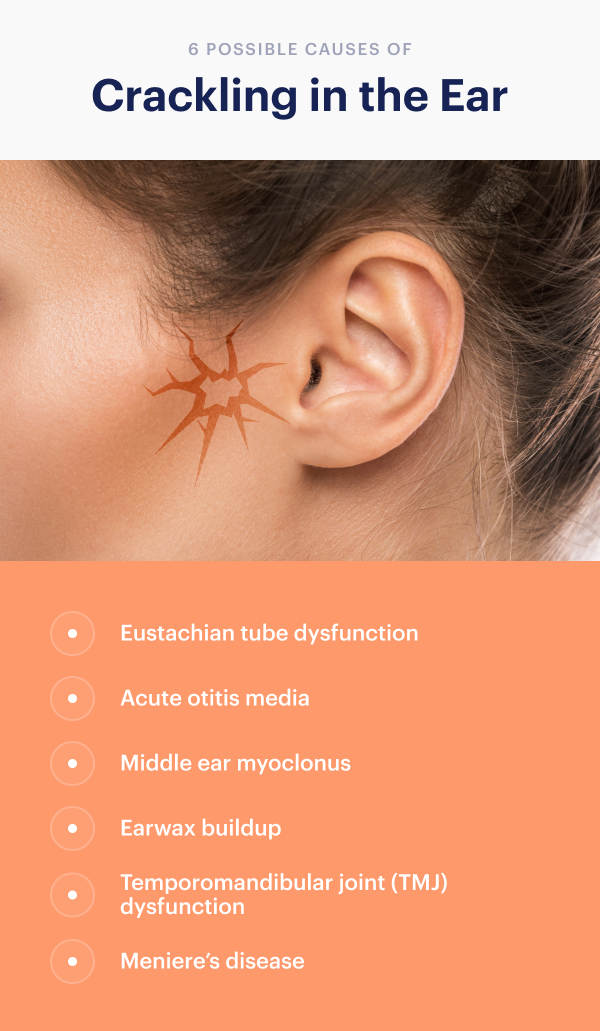
- Eustachian tube dysfunction.
- Acute otitis media.
- Middle ear myoclonus.
- Earwax buildup.
- Temporomandibular joint (TMJ) dysfunction.
- Meniere’s disease.
Eustachian Tube Dysfunction
Your Eustachian tubes are required for drainage of mucus out of your middle ear, as well as providing ventilation and pressure control. Crackling or popping sounds, accompanied by a feeling of fullness in the ears or ear pain, are common symptoms of dysfunction.
While it does not directly involve infection, Eustachian tube dysfunction can appear after an upper respiratory tract or ear infection, or flare-up of seasonal allergies. Non-inflammatory causes of Eustachian tube dysfunction include air pressure changes, such as if you have been scuba diving or traveling by air [2].
Acute Otitis Media
Acute otitis media is the medical term for middle ear infection, which can affect sound perception. The infection may migrate to the middle ear from the outer ear, or up the Eustachian tubes from an upper respiratory tract infection. These can be bacterial or viral.
Children are more likely to have middle ear infections than adults because their Eustachian tubes are not yet matured. They are positioned with a more horizontal slope than adults, where gravity assists with mucus and fluid drainage [3].
What percentage of children will experience acute otitis media at some point during their lifetime?
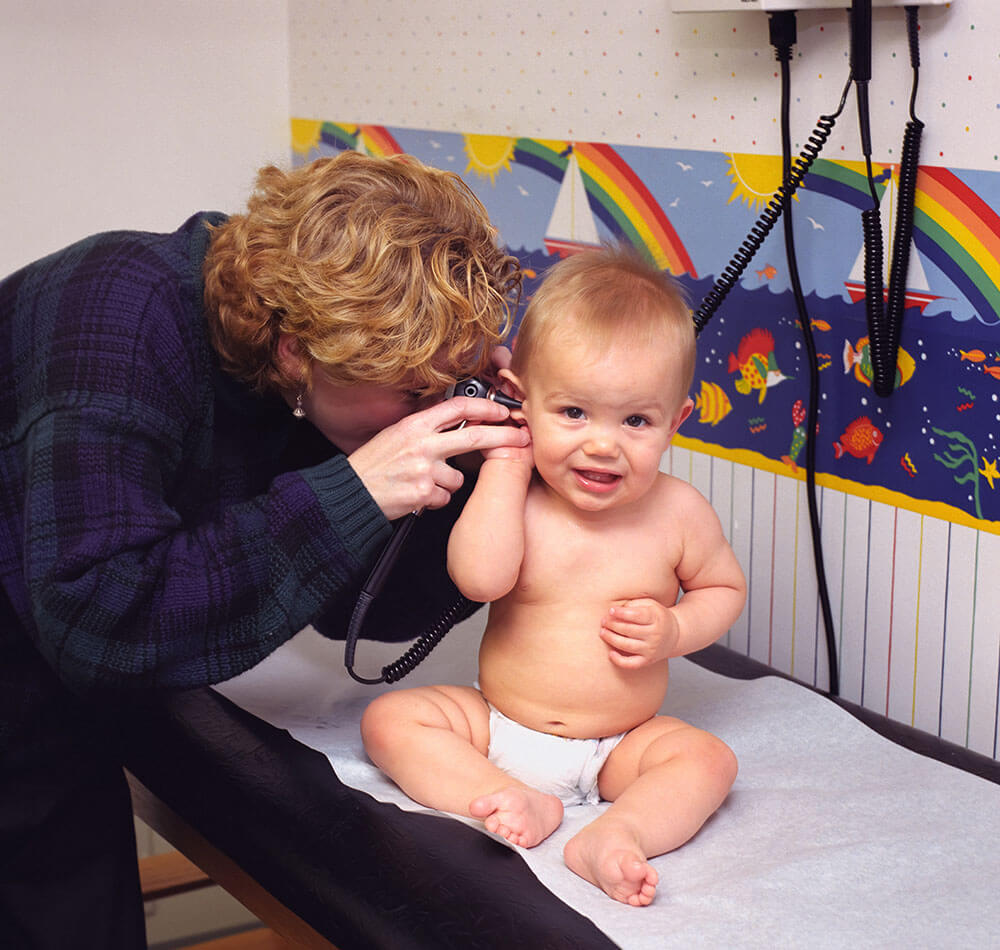
Middle Ear Myoclonus
Middle ear myoclonus (MEM) is a rare type of tinnitus caused by abnormal movement of the middle ear muscles. This can lead to a popping or crackling sound, or something else entirely such as a whoosh, buzz, or tapping noise. It may be called musical ear syndrome in cases where the sound resembles a rhythm or beat.
Injury to the ear, abnormal muscle contractions in other areas such as the throat, and neurological issues are some possible causes of MEM. In one case study, a girl reported hearing odd sounds after not chewing gum as her plane landed [4].
Earwax Buildup
Before you search for “hearing aids near me,” you may just have a physical blockage from a buildup of earwax.
The simplest cause of crackling sounds, earwax buildup in the outer ear can cause distorted sound perception if it gets severe enough. Also known as cerumen impaction, it becomes a problem when too much earwax accumulates in your ear canal, to the point that your eardrum is no longer visible [5].
Temporomandibular Joint (TMJ) Dysfunction
Temporomandibular joint (TMJ) disorders are a collection of dysfunctions in the facial muscles and the joint connecting your jaw to the temple bone in your skull. Here, a popping or crackling sound may be caused by pressure changes in your ear tubes or muscles, or by the movement of the jaw bones [6].
Meniere’s Disease
Meniere’s disease is a condition featuring tinnitus, vertigo, and sensorineural hearing loss in the affected ear. A small percentage of cases are genetic, but it is linked to autoimmunity and migraine, too. The disease features a buildup of fluid in the cochlea and vestibular organ of the inner ear, which alters your ability to perceive sound and maintain your balance [7].
How To Stop Crackling in Ears
Correct diagnosis and treatment are essential when you need relief from crackling ears.
Diagnosis
A correct diagnosis is essential, to find out the right cause of crackling sounds. Cases of ear wax buildup or middle ear infections can be seen on examination with an otoscope, which allows your doctor to see into the ear canal.
TMJ disorders require a more in-depth examination, including of your mouth, jaw joint, and their functions. You may have an overbite measured, and how well you can bite or open your mouth [6].
Other muscle disorders such as MEM, or Meniere’s disease, may even require radiological examination such as an MRI to see if there are any physical abnormalities [7].
When To See a Doctor
It is important to see a doctor as soon as possible if there are any sudden degenerative changes to your hearing, such as a crackling sound. For example, a normal speaking voice turning into a whisper overnight can indicate sudden sensorineural hearing loss.
In the case of an infection, it is best to see a doctor only if symptoms worsen or don’t improve in three days.
As MEM can be the result of injury, neurological issues, or muscle disorders, seek medical attention as soon as you can. Treating Meniere’s disease with steroids or other drugs to prevent the need for surgery later is essential, too [7].
TMJ dysfunction comes with other symptoms too, such as jaw pain, difficulty chewing, and sometimes your jaw feeling tight or locking up. Delaying treatment can affect your quality of life, so seeing a doctor is important [6].
Treatments
Medical professionals no longer see ear infections as something requiring immediate treatment. Now, watchful waiting is advised, with treatment recommended if there is no improvement in 72 hours. If respiratory or sinus infections are also involved, they must be treated too.
As for MEM, treatment depends on its cause or sustaining factors. Some people find success with biofeedback, while others may benefit from Botox injections, which are used in other spastic muscle disorders as well [4].
In the case of Meniere’s disease, steroid injections may relieve the inflammation that contributes to symptom attacks. More drastic treatment options involve partially damaging the nerves, or removing the labyrinth (which causes deafness) You may benefit from hearing aids if you have sensorineural hearing loss [7].
If you have muffled hearing or hearing loss, searching for the best online hearing test can help you find answers or the right hearing aid for you. Resources such as the tone deaf hearing test, and this MDHearingAid review may be of use too.
Home Remedies and Prevention Tips for Ear Crackling
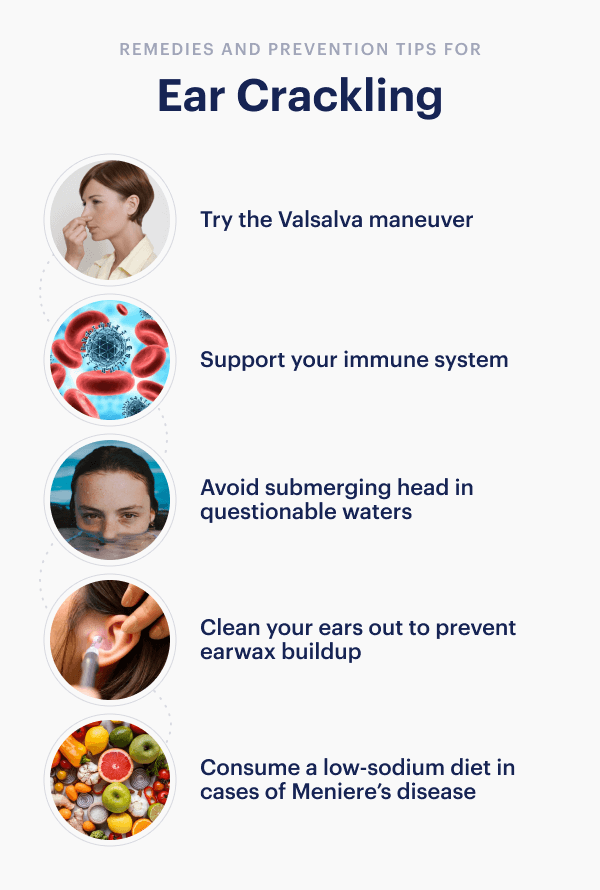
In cases of Eustachian tube dysfunction, particularly when you’re flying, the Valsalva maneuver is a tried and true method to enjoy quick relief. All this involves is pinching your nose while trying to exhale through it. You then feel a sensation of expansion in your ears, which then clears and releases excess pressure with it when you swallow [2].
Ear infections may be preventable by supporting your immune system, as they can be secondary to respiratory tract infection. Swimming with your head above water in areas with questionable water quality may be helpful, too.
Early research suggests that supplementing with Lactobacillus and Bifidobacterium probiotics, which can also be found in some yogurt products, may be protective. The antiviral, immune-boosting herb Echinacea can also reduce your risk of ear and respiratory infections, such as the common cold [3].
If the crackling in your ear is caused by a buildup of earwax, something as simple as cleaning your ears out at home can make a difference. Just be sure to use irrigation instead of a cotton swab, which can push earwax deeper into your ear.
If you have Meniere’s disease, emerging evidence suggests that a low-sodium diet may reduce your risk of flare-ups [7].
FAQ
What are the most important things we need to know about crackling sounds in the ear?
How Do I Stop My Ears From Crackling and Popping?
It is best to see a doctor if the below remedy isn’t enough to provide relief from the popping sound or crackling in your ears. You may have a buildup of earwax in your ear canal, acute otitis media, clogged Eustachian tubes, or a muscular or neurological issue.
What Home Remedy Can I Use for Crackling in My Ears?
The Valsalva maneuver provides rapid relief if you have blocked Eustachian tubes. If the cause is simply a buildup of earwax in the ears, regular cleaning by irrigation may be enough.
What Could Be Causing the Crackling in Your Ear?
Earwax buildup, infection, Eustachian tube dysfunction, dysfunction in the middle ear muscles, Meniere’s disease, and TMJ disorders are major causes of crackling in the ear.
Conclusion
Crackling ears can have a range of causes, from common and easily-solved to serious underlying issues, such as Meniere’s disease. For this reason, correct diagnosis and treatment are essential, starting from assessment for more common issues such as earwax blockages or an acute infection.
As the more serious triggers for hearing crackling sounds are much rarer, so don’t hesitate to seek help out of anxiety.
References:
- Esmaili, Aaron A, and John Renton. “A review of tinnitus.” Australian journal of general practice vol. 47,4 (2018): 205-208. doi:10.31128/AJGP-12-17-4420
- Schilder, A G M et al. “Eustachian tube dysfunction: consensus statement on definition, types, clinical presentation and diagnosis.” Clinical otolaryngology : official journal of ENT-UK ; official journal of Netherlands Society for Oto-Rhino-Laryngology & Cervico-Facial Surgery vol. 40,5 (2015): 407-11. doi:10.1111/coa.12475
- Schilder, Anne G M et al. “Otitis media.” Nature reviews. Disease primers vol. 2,1 16063. 8 Sep. 2016, doi:10.1038/nrdp.2016.63
- Ellenstein, Aviva et al. “Middle ear myoclonus: two informative cases and a systematic discussion of myogenic tinnitus.” Tremor and other hyperkinetic movements (New York, N.Y.) vol. 3 tre-03-103-3713-1. 15 Apr. 2013, doi:10.7916/D8RX9BS1
- Horton, Garret A et al. “Cerumen Management: An Updated Clinical Review and Evidence-Based Approach for Primary Care Physicians.” Journal of primary care & community health vol. 11 (2020): 2150132720904181. doi:10.1177/2150132720904181
- Małgorzata, Pihut et al. “Diagnostic of Temporomandibular Disorders and Other Facial Pain Conditions-Narrative Review and Personal Experience.” Medicina (Kaunas, Lithuania) vol. 56,9 472. 15 Sep. 2020, doi:10.3390/medicina56090472
- Koenen L, Andaloro C. Meniere Disease. [Updated 2021 Sep 4]. In: StatPearls [Internet]. Treasure Island (FL): StatPearls Publishing; 2021 Jan-. Available from: https://www.ncbi.nlm.nih.gov/books/NBK536955/
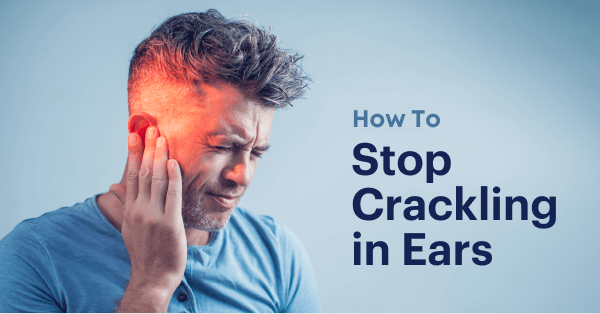
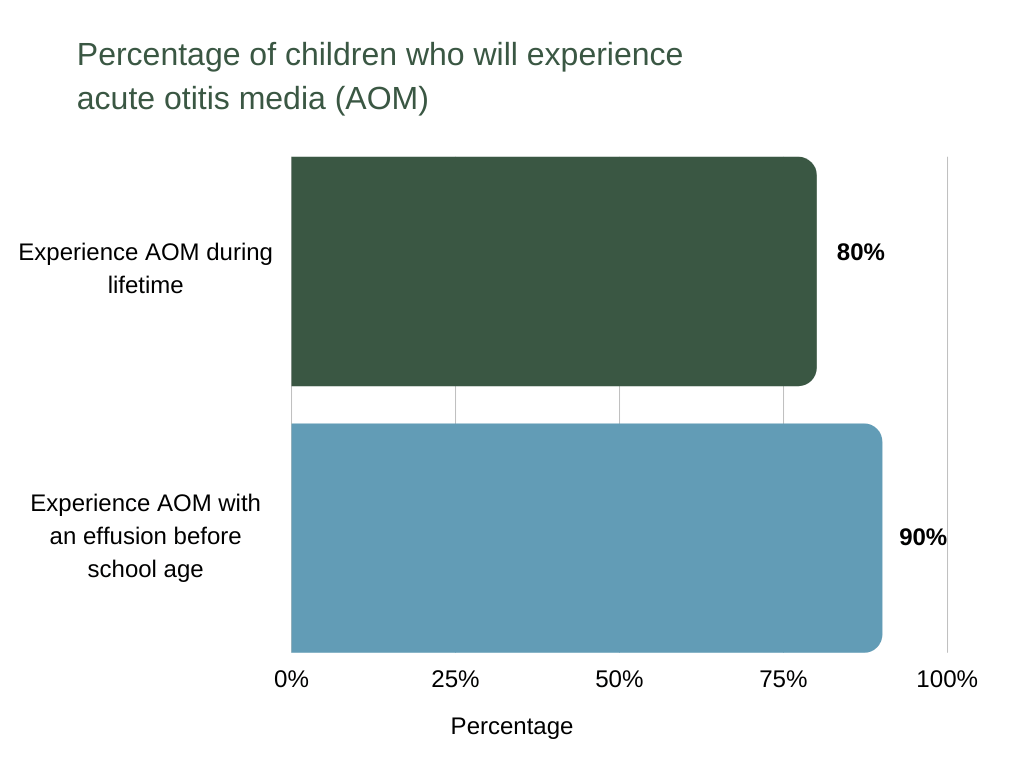


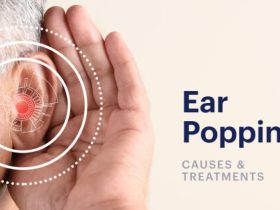

Leave a Reply